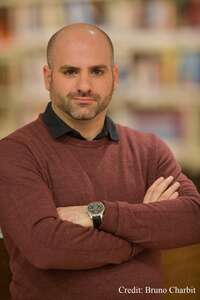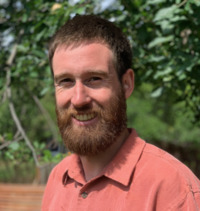Call for Abstracts: Academic Track
Academic Track
This year’s State of the Map conference will feature the fourth edition of the Academic Track - a full day of sessions dedicated to academic research about, and with, OpenStreetMap (for the organisation of last year’s Track, see here). These sessions will showcase the research and innovation of scientific investigations into OpenStreetMap. The Academic Track sessions provide a bridge to connect members of the OpenStreetMap community and the academic community through an open passage to exchange ideas, communication and opportunities for increased collaboration. We expect empirical, methodological, conceptual, or literature-review-based contributions addressing any scientific aspect related to OpenStreetMap (OSM), in particular, but not limited to, the following:
- Extrinsic or intrinsic quality assessment of OpenStreetMap data
- Analysis of contribution patterns in OpenStreetMap
- Generation of new and scientifically valuable datasets from OpenStreetMap
- Assessments of data import procedures and their impacts on data and community
- Integration between OpenStreetMap and other data sources (authoritative, user-generated, or otherwise valuable to OSM)
- Analysis/comparison of available software for scientific purposes related to OpenStreetMap
- New approaches to facilitate or improve data collection and/or data quality in OpenStreetMap (e.g. through gamification or citizen science approaches)
- Artificial Intelligence / Machine Learning and OpenStreetMap (e.g. AI-assisted mapping)
- Open research problems in OpenStreetMap and challenges for the scientific community
- Cultural, political, and organizational aspects of data production and usage practices in OpenStreetMap
- Studies using OpenStreetMap data in scientific domains
- Reviews of any scientific aspect connected to OpenStreetMap
In an effort to improve the interaction and collaboration between the academic and the more general OpenStreetMap communities, authors are invited to particularly highlight the practical implications or impacts of their research on the OpenStreetMap community at large.
Submission Guidelines
Authors are invited to submit extended abstracts using the State of the Map 2021 Pretalx submission system. Deadline for submission is 5 May 2021.
Abstracts should be between 800 and 1200 words. These limits will be strictly enforced for a fair and balanced review process.
Abstracts must be scientifically rigorous and the content should be logically structured as follows (without the need to include subsections): introduction/background, where the problem addressed is introduced; main aim or purpose of the study; brief description of the methodology and findings achieved; final discussion highlighting the scientific contribution of the study and its practical benefits/implications.
Abstracts are to be submitted online in plain-text format (no images or figures).
Abstracts will be evaluated by the scientific committee. Authors of selected abstracts will be invited to deliver an oral presentation during the Academic Track sessions at the online conference or to present a poster (in case a virtual poster session will be organised). Building on top of the successful Proceedings of the Academic Track at State of the Map 2019 and State of the Map 2020, selected abstracts will be published as a collection, each with a distinct Digital Object Identifier (DOI) in Zenodo, an open access online repository.
The 2019 and 2020 Academic Track resulted in a special issue of the ISPRS International Journal of Geo-Information that is now close to completion. Similarly, the scientific committee will seek to further disseminate the contributions to this conference by investigating the organization of a special issue in a relevant, open access, scientific journal. Authors of the selected abstracts will be invited to submit a full paper to this special issue. Successful submissions may enjoy partial or full waiver of publication fees.
Timeline and Deadlines
- 11 April 2021: Deadline non-academic talk submissions
- 5 May 2021: Deadline academic talk submissions
- June 2021: Program announcement
- 9-11 July 2021: State of the Map 2021
Submit your presentation
Please submit your presentation proposal to our submission form.
Scientific Committee
You can reach the academic track committee via email to academic-sotm@openstreetmap.org.
-
 Dr. Marco Minghini –
European Commission Joint Research Centre, Ispra, Italy. (Co-chair)
Dr. Marco Minghini –
European Commission Joint Research Centre, Ispra, Italy. (Co-chair)Marco studied at Politecnico di Milano, where he got a PhD in GIS in 2014. After working as a Postdoc in the GIS group of GEOlab at Politecnico di Milano, in 2018 he joined the European Commission - Joint Research Center (JRC) in Ispra, Italy (Unit B.6 Digital Economy) as a Scientific Project Officer, making applied research on geodata interoperability and helping with the implementation of the INSPIRE Directive. Marco is an advocate of open source software and open data and has a long experience in OSM both as a contributor and as a researcher. He is a Charter Member of OSGeo, Secretary of ISPRS WG IV/4 “Collaborative Crowdsourced Cloud Mapping (C3M)”, Member of the OpenStreetMap Foundation and Voting Member of the Humanitarian OpenStreetMap Team.
-
 Dr. A. Yair Grinberger –
Department of Geography, The Hebrew University of Jerusalem, Israel (Co-chair)
Dr. A. Yair Grinberger –
Department of Geography, The Hebrew University of Jerusalem, Israel (Co-chair)Yair earned his PhD in Geography from the Hebrew University of Jerusalem, studying human mobility behaviors using GPS traces. During his postdoctoral research at the GIScience Research Group in Heidelberg University, Germany he focused on large-scale data production events in OpenStreetMap and their effects. In his current research Yair studies, among other issues, the co-construction of mapping practices and data outputs. His broader research interests include Geographic Information Science, critical GIS, and digital representations of cultural and social phenomena and issues.
-
 Dr. Peter Mooney –
Department of Computer Science, Maynooth University, Ireland
Dr. Peter Mooney –
Department of Computer Science, Maynooth University, IrelandPeter is an Assistant Professor at the Dept. of Computer Science in Maynooth University and has been working in the domain of geospatial data research for over a decade. He is particularly interested in understanding the processes behind the collection of VGI data and how computing techniques such as machine learning can be applied to these datasets and sources. He is heavily involved in OSGeo activities in Ireland. His teaching philosophy sees the exclusive use of FOSS4G (Free and Open Source Software for Geomatics) and Open Data for all student teaching and learning activities. He is currently an editor of the Transactions in GIS journal.
-
 Dr. Jennings Anderson –
Independent Researcher, YetiGeoLabs, Montana, USA
Dr. Jennings Anderson –
Independent Researcher, YetiGeoLabs, Montana, USAJennings is a Geo-Information Scientist specializing in the production and maintenance of volunteered geographic information (VGI), especially OpenStreetMap. His work takes a contributor-centric approach to OSM data analysis, prioritizing understanding who is editing the map and how the community is evolving. He earned his PhD in Computer Science from the University of Colorado Boulder where he built large scale OSM data analysis systems. He collaborates closely with OSM researchers from all over the world across both academia and industry.
-
 Christina Ludwig –
PhD Student, GIScience Research Group, Heidelberg University, Germany
Christina Ludwig –
PhD Student, GIScience Research Group, Heidelberg University, GermanyChristina is a PhD student at the GIScience Research Group at Heidelberg University, Germany. She studied environmental science (BSc) and applied geoinformatics (MSc) with a focus on remote sensing. In her current research she investigates regional differences in the representation of urban green spaces in OSM and develops methods to integrate OSM and remote sensing data under consideration of their respective uncertainties. At Heidelberg University she teaches courses on GIS analyses using Free and Open Source Software and Python. As an OSM mapper, she is mostly active within local green spaces or as a member of the disastermappers Heidelberg.
The SotM 2021 Scientific Committee